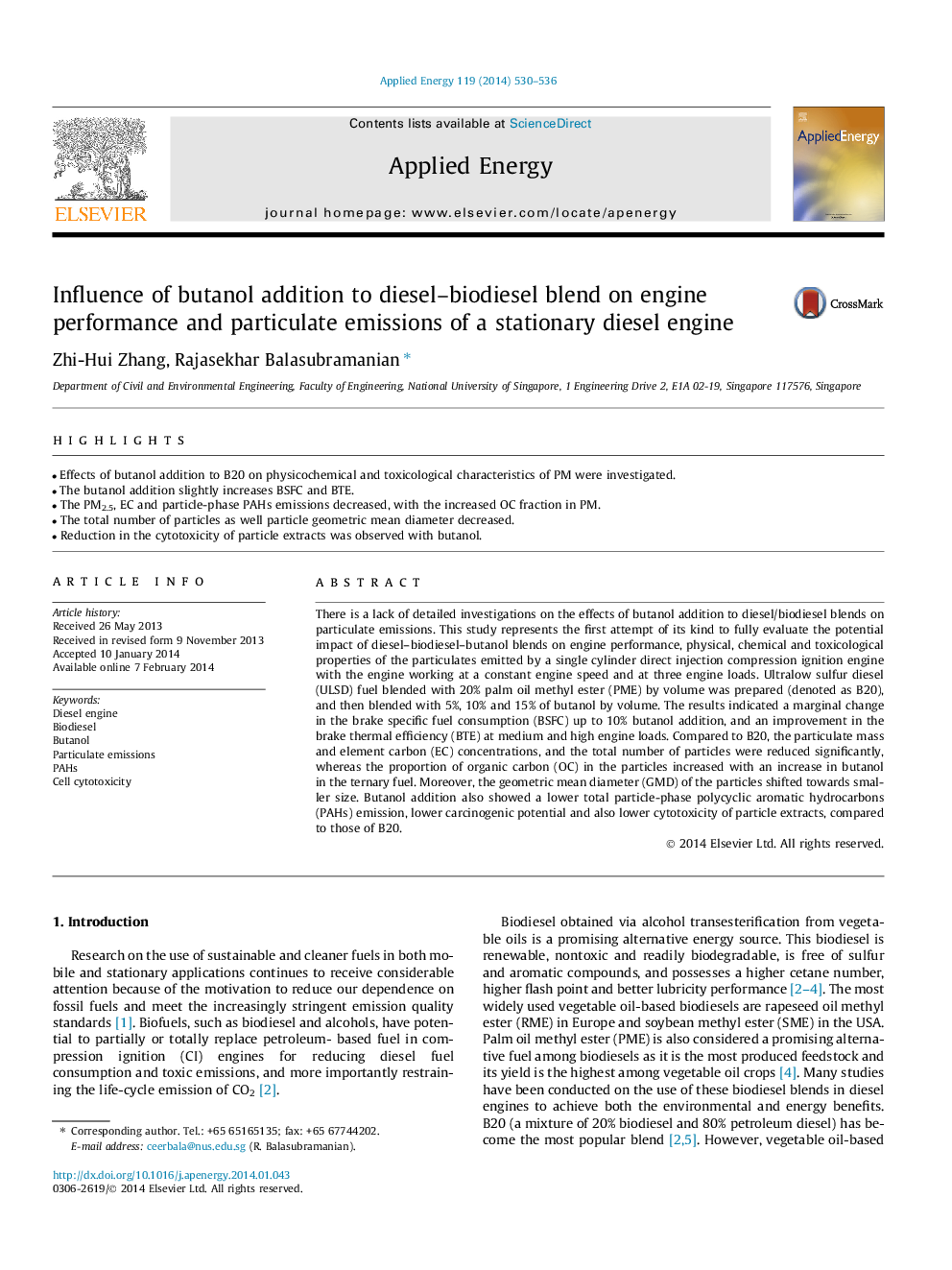| Article ID | Journal | Published Year | Pages | File Type |
|---|---|---|---|---|
| 6691008 | Applied Energy | 2014 | 7 Pages |
Abstract
There is a lack of detailed investigations on the effects of butanol addition to diesel/biodiesel blends on particulate emissions. This study represents the first attempt of its kind to fully evaluate the potential impact of diesel-biodiesel-butanol blends on engine performance, physical, chemical and toxicological properties of the particulates emitted by a single cylinder direct injection compression ignition engine with the engine working at a constant engine speed and at three engine loads. Ultralow sulfur diesel (ULSD) fuel blended with 20% palm oil methyl ester (PME) by volume was prepared (denoted as B20), and then blended with 5%, 10% and 15% of butanol by volume. The results indicated a marginal change in the brake specific fuel consumption (BSFC) up to 10% butanol addition, and an improvement in the brake thermal efficiency (BTE) at medium and high engine loads. Compared to B20, the particulate mass and element carbon (EC) concentrations, and the total number of particles were reduced significantly, whereas the proportion of organic carbon (OC) in the particles increased with an increase in butanol in the ternary fuel. Moreover, the geometric mean diameter (GMD) of the particles shifted towards smaller size. Butanol addition also showed a lower total particle-phase polycyclic aromatic hydrocarbons (PAHs) emission, lower carcinogenic potential and also lower cytotoxicity of particle extracts, compared to those of B20.
Related Topics
Physical Sciences and Engineering
Energy
Energy Engineering and Power Technology
Authors
Zhi-Hui Zhang, Rajasekhar Balasubramanian,
